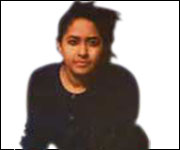Madhavikutty-childhood |
|
|
|
|
|
 |
|
Kamala Suraiya’s childhood was spent at Calcutta where her father was employed as a senior officer in the Walford Transport Company. And she spent a part of her childhood in the Nalappatt ancestral home in Ponnayoorkulam, south Malabar as well. |
| |
Like her mother, Kamala Das also excelled in writing. Her love of poetry began at an early age through the influence of her great uncle, Nalappatt Narayana Menon, a prominent writer. However, she became a professional writer after her marriage.
|
| |
She was noted for her many Malayalam short stories as well as many poems written in English. Suraiya was also a syndicated columnist. English Das' first book, Summer In Calcutta was a promising start. She wrote chiefly of love, its betrayal, and the consequent anguish. |
|
|
|
|
|
At the age of 42, she published her autobiography, My Story, which was later translated into many foreign languages. |
Malayalam |
Kamala Das wrote about a range of topics, from the story of poor old servant of her home place in Punnayoorkulam or about the sexual disposition of upper middle class women living near a Metropolitan city . Some of her better-known stories include Pakshiyude Manam, Neypayasam, Thanuppu, and Chandana Marangal. |
She wrote a few novels , among which Neermathalam Pootha Kalam, which was received favourably by the reading public as well as the critics, stands out.
|
|
|
|
|
|
Awards and other recognitions |
Kamala Das has received many awards for her literary contribution. Some of them are...
|
|
|
|
|
|
 Asian Poetry Prize |
 Sahitya Academy Award Sahitya Academy Award |
 Kent Award for English Writing from Asian Countries Kent Award for English Writing from Asian Countries |
 Vayalar Award Vayalar Award |
 Asan World Prize Asan World Prize |
 Kerala Sahitya Academy Award Kerala Sahitya Academy Award |
 Ezhuthachan Award Ezhuthachan Award |
 Muttathu Varkey Award Muttathu Varkey Award |
|
|
|
|
|
She also participated in the poetry recitation sessions held at Germany's Essen, Bonn and Duisburg universities, Adelaide Writer's Festival (Adelaide, Australia), Frankfurt Book Fair, University of Kingston, Jamaica, Singapore, and South Bank Festival (London), Concordia University (Montreal, Canada), Columbia University (New York), Qatar, Dubai, Sharjah, Abu Dhabi, etc. Her works are also translated into French, Spanish, Russian, German and Japanese. |
|
|
|
|
|
She spent her childhood between Calcutta, where her father was employed as a senior officer in the Walford Transport Company, the Nalappatt ancestral home in Ponnayoorkulam, south Malabar. However, she did not start writing professionally until after she married and became a mother. |
Suraiya’s first book, Summer in Calcutta, was a promising start wrote chiefly of love, its betrayal, and the resulting anguish. |
|
|
|
|
|
She published her autobiography," My Story" |
She spent her childhood between Calcutta, where her father was employed as a senior officer in the Walford Transport Company and the Nalappatt ancestral home in Ponnayoorkulam, south Malabar region of kerala. |
Like her mother, Kamala Das also excelled in writing. Her love of poetry began at an early age through the influence of her great uncle, Nalappatt Narayana Menon, a prominent writer. |
English Das' first book, Summer In Calcutta, was a promising start. She wrote chiefly of love, its betrayal, and the consequent anguish.
At the age of 42, she published her autobiography, My Story, which was later translated into many foreign languages. |
Kamala Suraiya also held positions like :
|
 Vice-Chairperson in Kerala Sahitya Academy |
 Editor of Poet magazine Editor of Poet magazine
|
 Chairperson in Kerala Forestry Board Chairperson in Kerala Forestry Board |
 Poetry editor of Illustrated Weekly of India. Poetry editor of Illustrated Weekly of India.
|
 President of the Kerala Children's Film Society President of the Kerala Children's Film Society
|
Major incidents in Suraiya’s life |
Conversion to Islam |
Born in a conservative Hindu Nair family of Nallappattu , Madavikkutty embraced Islam in 1999 at the age of 65 and assumed the name of Kamala Suraiya (or Kamala Surayya). |
Politics |
Suraiya, once active in Indian politics, had launched a national political party, Lok Seva Party. In 1984 she contested for Lok Sabha election and lost. |
Suraiya’s works |
|
English |
Malayalam Poetry |
Novels |
 1964: Pakshiyude Maranam (short stories) 1964: Pakshiyude Maranam (short stories) |
1977: Alphabet of Lust (novel)
|
 1966: Naricheerukal Parakkumbol (short stories) |
Poetry |
 1968: Thanuppu (short story, Sahitya Academi award) |
 1964: The Sirens (Asian Poetry Prize winner)
|
|
 1987: Balyakala Smaranakal (Childhood Memories) |
|
|
|
|
 1989: Varshangalkku Mumbu (Years Before) |
 1965: Summer in Calcutta (poetry; Kent's Award winner) |
|
|
 1990: Palayan (novel) |
|
|
|
|
 1967: The Descendants (poetry) |
|
|
 1991: Neypayasam (short story) |
|
|
|
|
|
|
|
|
 1992: Dayarikkurippukal (novel) |
 1973: The Old Playhouse and Other Poems (poetry) |
|
|
 1994: Neermathalam Pootha Kalam (novel, Vayalar Award) |
|
|
|
|
 1976: My Story (autobiography) |
|
|
 1996: Chekkerunna Pakshikal (short stories) |
|
|
|
|
 1985: The Anamalai Poems (poetry) |
|
 1998: Nashtapetta Neelambari (short stories) |
|
|
|
|
 2005: Chandana Marangal (Novel) |
 1996: Only the Soul Knows How to Sing (poetry) |
|
|
 2005: Madhavikkuttiyude Unmakkadhakal (short stories) |
|
|
|
|
 2001: Yaa Allah (collection of poems) |
|
|
 2005: Vandikkalakal (novel) |
|
|
|
|
|
|
|
|
|

